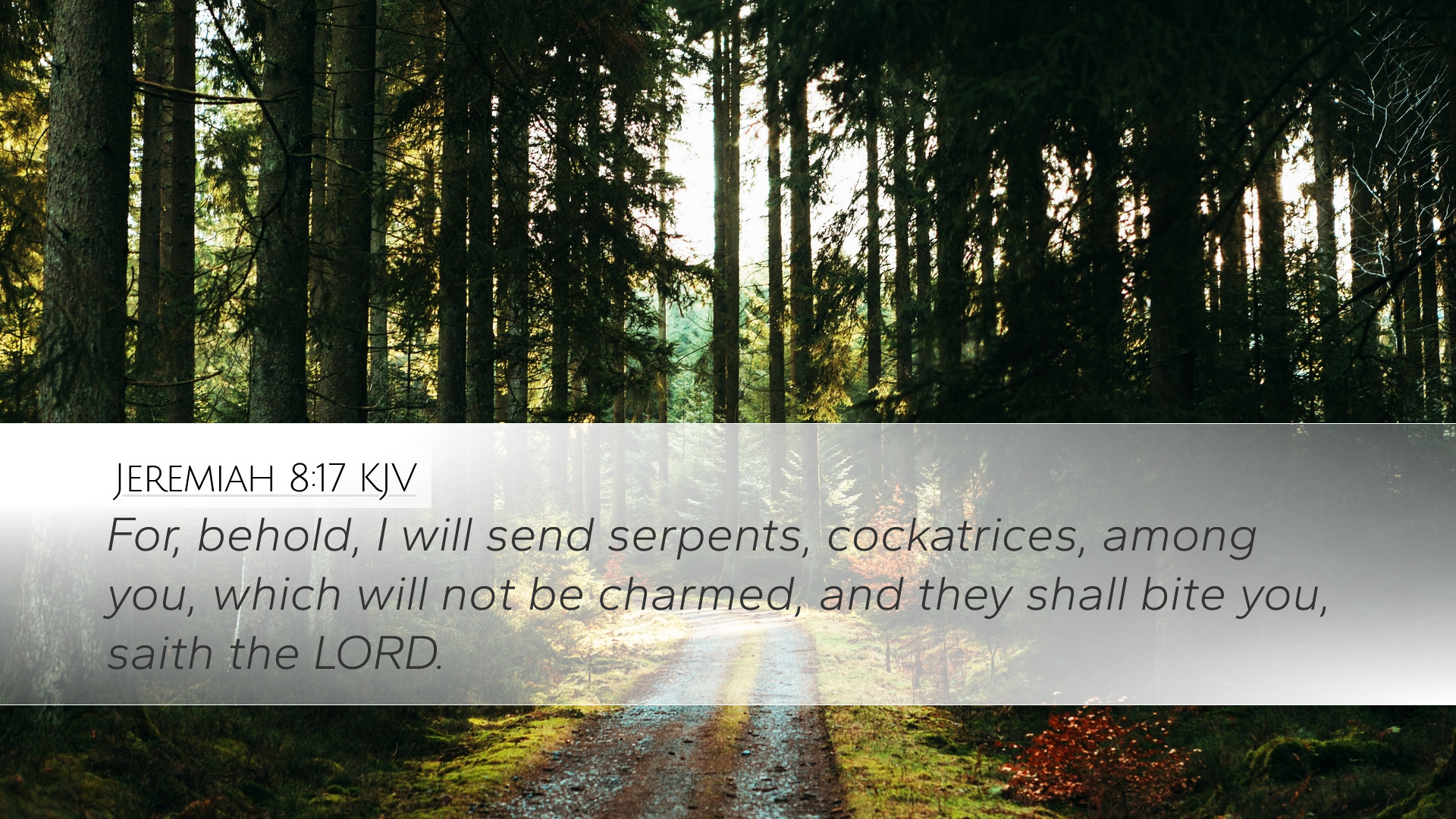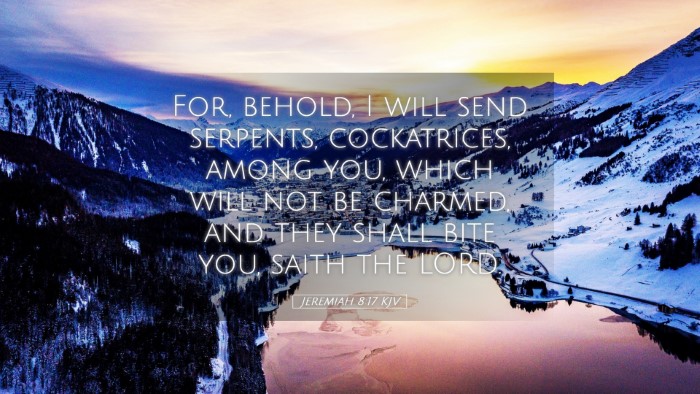Commentary on Jeremiah 8:17
Verse: "For, behold, I will send serpents, cockatrices, among you, which will not be charmed, and they shall bite you, saith the LORD."
Contextual Overview
The book of Jeremiah serves as a profound exhortation to the people of Israel, who are facing the consequences of their disobedience and idolatry. In this particular verse, the metaphor of serpents and cockatrices signifies the judgment that would come upon those who have turned away from the Lord. The use of creatures associated with danger emphasizes the severity of the situation facing the people.
Theological Themes
- Divine Judgment: This verse explicitly communicates God's impending judgment for sin. The serpent, often representing sin and evil throughout Scripture, illustrates the reality that turning away from God invites calamity.
- Irreversibility of Judgment: The phrase "which will not be charmed" suggests that there is no escape or remedy for the judgment to come. It reinforces the idea that rejection of God leads to inevitable consequences.
- God's Sovereignty: The statement "saith the LORD" affirms God's authority and the certainty of His word. This serves as a reminder that God remains sovereign over the destiny of nations and individuals.
Insights from Public Domain Commentaries
Matthew Henry Commentary
Matthew Henry notes the severity of this warning from God, likening the mentioned creatures to the divine judgment that is swift and sure. He states that God’s warnings often precede His judgments, and this verse serves as an ultimate confirmation that those warnings were disregarded by the people. Henry emphasizes the imagery of the cockatrice, a creature of remarkable nature, which denotes the fierce and unrestrained judgment awaiting the disobedient. He further explains that the uncharmable serpents symbolize the unwanted and inescapable troubles that sin brings into one's life.
Albert Barnes’ Notes on the Bible
Albert Barnes highlights that the serpents signify the instruments of judgment prepared by God due to the people’s transgressions. He elaborates that the "cockatrice" denotes a specific type of serpent that was particularly lethal, symbolizing the extreme danger that lies ahead. Barnes asserts that the inability to charm signifies mankind's futile attempts to avert divine judgment through rituals or magics, emphasizing that true remedy must come from repentance and turning back to God.
Adam Clarke’s Commentary
Adam Clarke interprets the serpents and cockatrices as representations of foreign invasions and calamities that would also arise from the sinful actions of God’s people. He explains that such creatures were believed to be immune to charmers, suggesting that the people’s attempts to ward off judgment through human means would be ineffective. Clarke’s commentary connects this to a broader understanding of God's call to acknowledge their sinfulness and seek true repentance, rather than relying on superficial means of protection.
Practical Applications
- Repentance: This verse calls believers to examine their lives and seek genuine repentance for any areas of disobedience. It serves as a warning about the consequences of living outside the will of God.
- Awareness of Divine Authority: Reflecting on God's sovereignty reinforces the understanding that He is in control, and that His justice will ultimately prevail. Believers are encouraged to trust in God's perfect judgment.
- Preparation for Trials: The imagery of serpents can symbolize various trials and tribulations in life. Christians are reminded to prepare their hearts and spirits for challenges, ensuring they remain steadfast in faith.
Conclusion
Jeremiah 8:17 serves as a poignant reminder of the grave consequences of turning away from God. Through the collective insights of Matthew Henry, Albert Barnes, and Adam Clarke, a deeper understanding of the divine warnings and the assurances of God’s judgment emerges.


